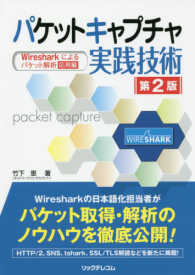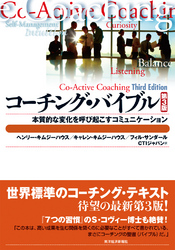- ホーム
- > 洋書
- > 英文書
- > Business / Economics
Full Description
In this book about a hundred papers are presented. These were selected from over 450 papers submitted to WCCE95. The papers are of high quality and cover many aspects of computers in education. Within the overall theme of "Liberating the learner" the papers cover the following main conference themes: Accreditation, Artificial Intelligence, Costing, Developing Countries, Distance Learning, Equity Issues, Evaluation (Formative and Summative), Flexible Learning, Implications, Informatics as Study Topic, Information Technology, Infrastructure, Integration, Knowledge as a Resource, Learner Centred Learning, Methodologies, National Policies, Resources, Social Issues, Software, Teacher Education, Tutoring, Visions. Also included are papers from the chairpersons of the six IFIP Working Groups on education (elementary/primary education, secondary education, university education, vocational education and training, research on educational applications and distance learning). In these papers the work in the groups is explained and a basis is given for the work of Professional Groups during the world conference. In the Professional Groups experts share their experience and expertise with other expert practitioners and contribute to a postconference report which will determine future actions of IFIP with respect to education. J. David Tinsley J. van Weert Tom Editors Acknowledgement The editors wish to thank Deryn Watson of Kings College London for organizing the paper reviewing process. The editors also wish to thank the School of Informatics, Faculty of Mathematics and Informatics of the Catholic University of Nijmegen for its support in the production of this document.
Contents
One IFIP Working Groups.- Two Artificial Intelligence.- Three Costing.- Four Developing Countries.- Five Distance Learning.- Six Equity Issues.- Seven Evaluation.- Eight Flexible Learning.- Nine Implications.- Ten Informatics as Study Topic.- Eleven Information Technology.- Twelve Infrastructure.- Thirteen Integration.- Fourteen Knowledge as a Resource.- Fifteen Learner Centred Learning.- Sixteen Methodologies.- Seventeen National Policies.- Eighteen Resources.- Nineteen Social Issues.- Twenty Software.- Twenty-One Teacher Education.- Twenty-Two Tutoring.- Twenty-Three Visions.- Index of contributors.- Keyword index.- Keyword list.







